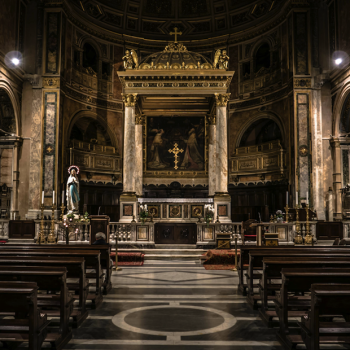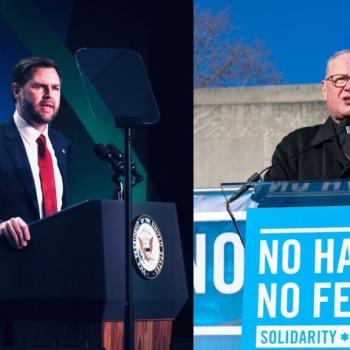Responding to this in reverse order:
(1) That Thanksgivings were not limited to November does not mean that the first one held by the colonists in Plymouth (presumably in September or early October) was not a thanksgiving.
(2) The modern idea that in a religious thanksgiving "everyone spent the day praying" is inconsistent with the only description of the specific activities of a definitely identified thanksgiving day in early Plymouth Colony -- the thanksgiving held in Scituate in 1636 when a religious service was followed by feasting. (See my book The Seventeenth-Century Town Records of Scituate, Massachusetts(Boston: NEHGS, 2001), vol. 3, p. 513.)
(3) That "what we think of as Thanksgiving was really a harvest festival" (as if that meant it could not have been a thanksgiving) repeats Deetz's incorrect opinion that an English harvest festival was non-religious or even irreligious.
(4) That the Pilgrims "would never have tolerated festivities at a true religious event" presumes a narrow definition of what a true religious event was before arriving through circular argument at a denial that what the Pilgrims did was such an event, because it differed from the axiomatic definition. (Ever been to a midwestern church picnic? Did tossing horseshoes and playing softball make it non-religious?)
(5) The Pilgrims attempted to pattern their religious activities according to biblical precedent. The precedent for a harvest festival was the Feast of Tabernacles, Sukkoth (Deut. 16: 13-14), lasting seven days. The biblical injunction to include the "stranger" probably accounts for the Pilgrims' inviting their Native neighbors to rejoice with them.
Besides Sukkoth, the Pilgrims' experience of a Reformed Protestant thanksgiving every year in Leiden probably contributed to what they considered appropriate. The October 3 festivities commemorated the lifting of the Siege of Leiden in 1574, when half the town had died (an obvious parallel with the experience of the Pilgrims in the winter of 1620-21). Leiden's ten-day festivity began with a religious service of thanksgiving and prayer, followed by meals, military exercises, games, and a free fair. The common assumption that the Pilgrims' 1621 event should be judged against the forms taken by later Puritan thanksgivings -- whether or not those are even correctly understood -- overlooks the circumstance that the Pilgrims did not have those precedents when they attempted something new, intentionally based not on old English tradition but on biblical and Reformed example.
The History Channel website states that, "the colonists didn't even call the day Thanksgiving. To them, a thanksgiving was a religious holiday in which they would go to church and thank God for a specific event, such as the winning of a battle. On such a religious day, the types of recreational activities that the pilgrims and Wampanoag Indians participated in during the 1621 harvest feast -- dancing, singing secular songs, playing games -- wouldn't have been allowed. The feast was a secular celebration, so it never would have been considered a thanksgiving in the pilgrims minds."
Winslow, our sole source, says nothing about "dancing, singing secular songs, [or] playing games." Those might be intended among Winslow's general term "recreations," but one cannot imagine, specify, and cite them as proof that the Pilgrims' day was "a secular celebration."
Thanksgiving seems to commemorate a heritage of false memory. The Internet myths of Thanksgiving range from Fundamentalists' invention of a fake 1623 Thanksgiving Proclamation -- to prove that God was being thanked (not the Indians) -- through Libertarians' use of the same fake proclamation to claim that "the real reason for Thanksgiving, deleted from the official story, is: Socialism does not work; the one and only source of abundance is free markets, and we thank God we live in a country where we can have them."
If Thanksgiving was not about the discovery of private property's profitability, not about help offered to the colonists by the Wampanoag Indians, not about God's providence -- what was it?
William Loren Katz, author of Black Indians, A Hidden Heritage, writes that, "In 1637 Governor Bradford, who saw his colonists locked in mortal combat with dangerous Native Americans, ordered his militia to conduct a night attack on the sleeping men women and children of a Pequot Indian village. To Bradford, a devout Christian, the massacre was imbued with religious meaning."
Clearly we should realize that these people were not nice, but just exactly how bad? "Not even Charles Manson and Jim Jones combined could compare with that murderous Doomsday cult -- the Pilgrims," says a website article called "The Pilgrims, Children of the Devil: Puritan Doomsday Cult Plunders Paradise." The site calls itself the Common Sense Almanac, Progressive Pages (and claims to be a project of the Center for Media and Democracy) and says: "According to William B. Newell, a Penobscot Indian and former chairman of the anthropology department at the University of Connecticut, the first official Thanksgiving Day commemorated the massacre of 700 Indian men, women and children during one of their religious ceremonies."




